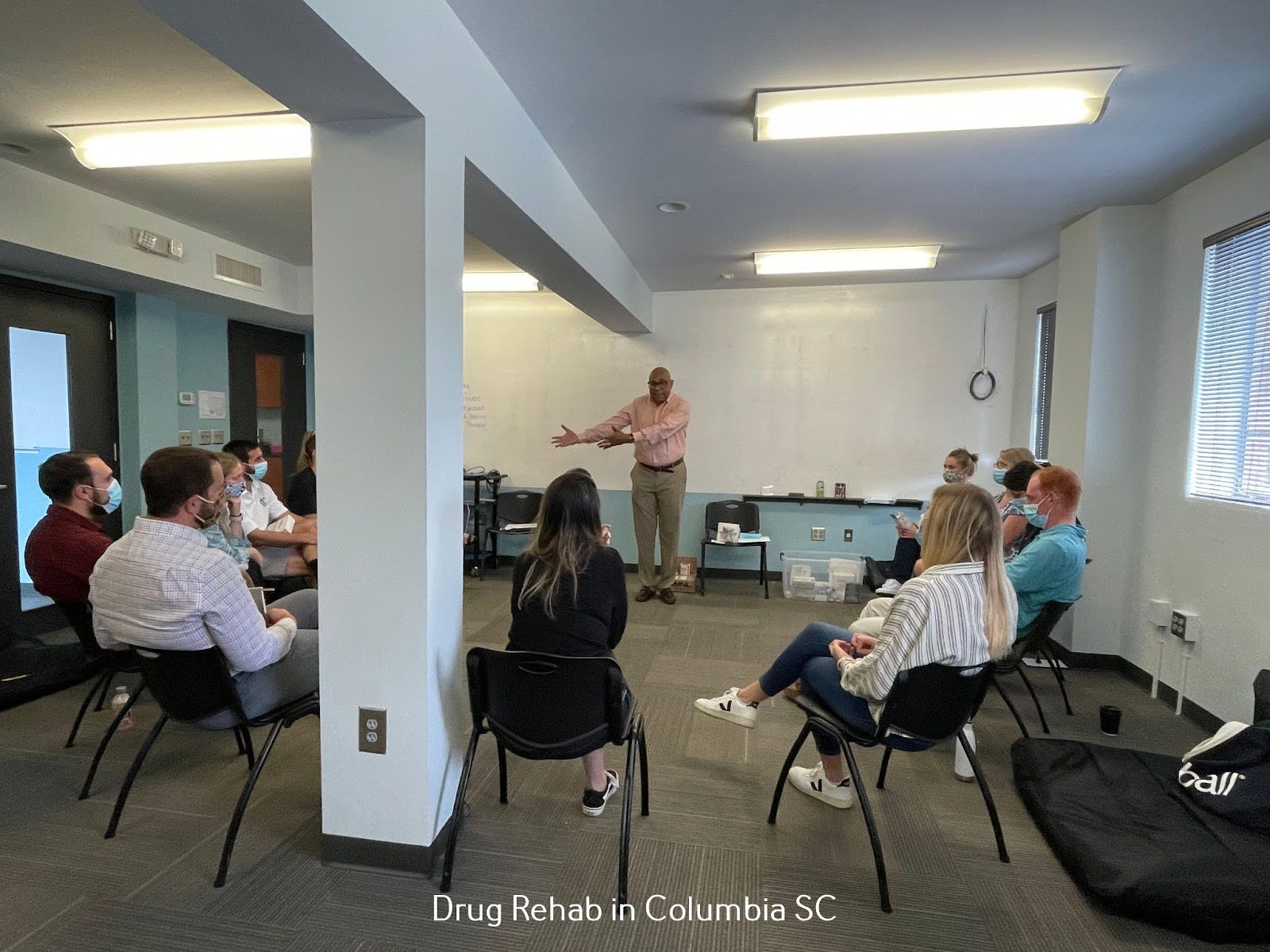The drug ketamine is a sedative used in medical settings for its anesthetic effect, but it has become increasingly popular as a recreational drug due to its hallucinogenic properties. In recent years, there’s been a rise in the number of people using ketamine, and this has led to an increase in the number of reported overdoses. So how dangerous is it to overdose on ketamine? Let’s take a look.
What Does Ketamine Do?
Ketamine is an anesthetic drug that has gained a lot of attention lately for having highly promising effects on treating mental health issues. It belongs to a class of drugs called NMDA antagonists which essentially means it blocks receptors in the brain from responding to glutamate, which is linked to depression and addiction.
While considered controversial at first, due to its past use as a party drug, studies have found that it can be profoundly effective in treating severe depression, PTSD, and other disorders such as OCD.
What’s more surprising is that the relief offered by ketamine may start within hours of taking it, compared with weeks or even months for traditional antidepressant treatments. This makes ketamine a potential breakthrough for people who are suffering from these conditions and for whom other treatment options don’t appear to be working.
Can you overdose on Ketamine?
The answer, unfortunately, is yes. Ketamine is a synthetic tranquilizer often used by veterinarians to sedate large animals, and as an anesthetic for humans before surgery. However, it has become increasingly popular as a recreational drug due in part to its hallucinogenic effects.
Because the drug has such an intense high, users may be tempted to take more in an effort to get a stronger effect. Doing this, however, puts them at risk of overdosing very quickly. Therefore, it is critical for users of this drug to take precautions regarding dose limits and seek medical help immediately if they experience any symptoms of overdose.
Normal dosage vs. lethal dosage?
In the clinical setting, ketamine is usually administered intravenously or intramuscularly in small doses to produce sedation and analgesia. The normal dose of ketamine depends on the patient’s age and weight; however, the typical dose range for adults is 2-4 mg/kg body weight. When given through intramuscular injection, ketamine produces its effects within 2-3 minutes and can last up to 25 minutes.
Ketamine has the potential to be lethal in high doses. Generally speaking, it would take 10 times the recommended therapeutic dose (20-40 mg/kg) to reach a lethal level of toxicity for an adult.
A much smaller dose can cause potentially fatal cardiac arrest if given intravenously with no other medication. Therefore it is highly important to use ketamine responsibly and one should always strictly adhere to recommended dosages when administering this drug.
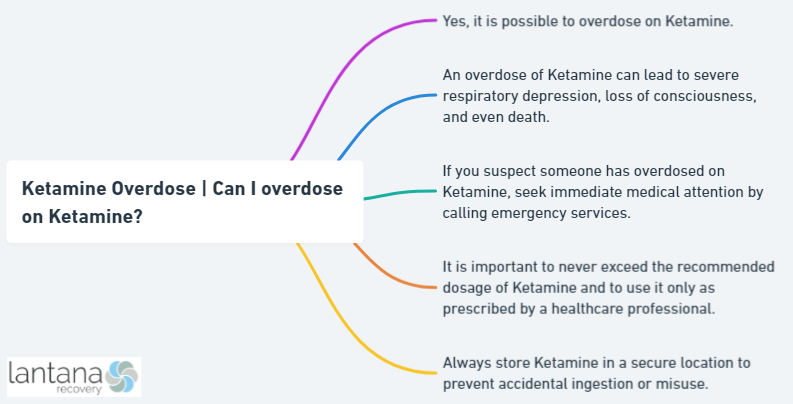
Symptoms of Ketamine overdose?
It’s important to note that a person can overdose on any amount of ketamine; however, the higher the dose taken, the more severe the symptoms tend to be.
When someone overdoses on ketamine, they may experience dangerous symptoms such as:
- Slurred speech
- Dizziness or nausea
- Difficulty breathing or speaking clearly
- Impaired vision or hearing loss
- Chest pain or irregular heartbeat
- Disorientation
- Confusion
- Impaired motor control
If you suspect someone has taken too much ketamine or overdosed on the drug, seek immediate medical attention.
What to do in case of Ketamine overdose?
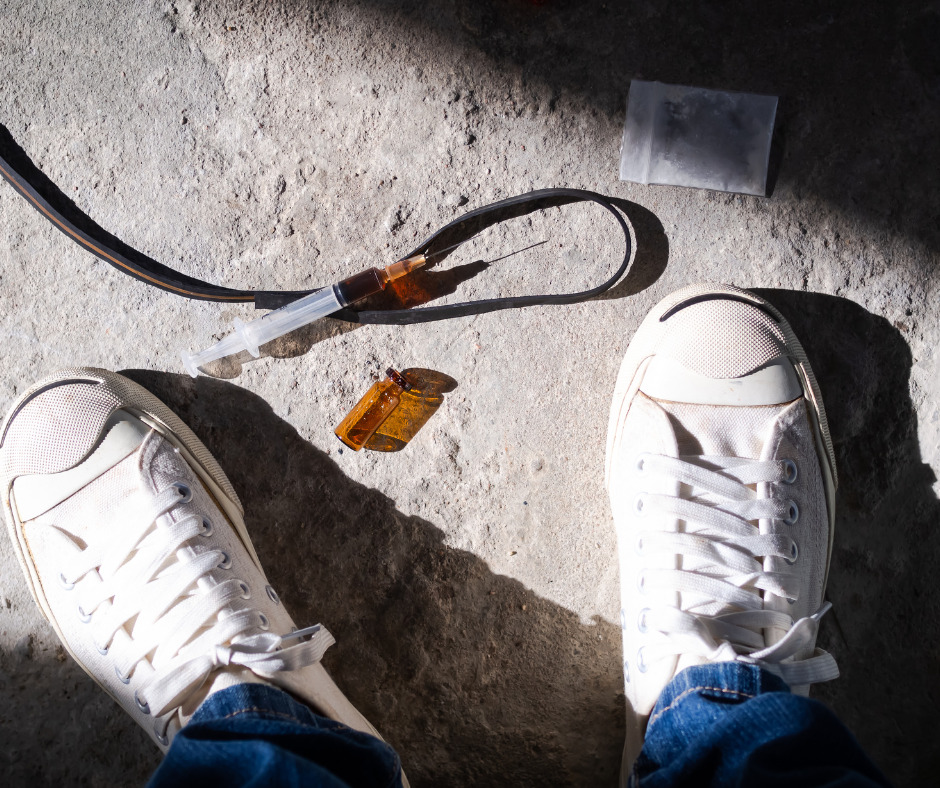
In the event of a suspected ketamine overdose, contact emergency services immediately and be ready to provide information such as any recent dose taken, the name of the drug, as well as details about the patient’s weight, height, and medical history.
While waiting for medical assistance to arrive, it is important to ensure that the individual is breathing and has an open airway. If the person is unconscious, you should try to wake them up and keep them awake if possible.
If they are not breathing, you should begin CPR immediately. It’s also important to remember that if someone is suffering from a ketamine overdose, never induce vomiting, it can lead to a severe worsening of their condition.
Once necessary help arrives on the scene, response personnel would typically perform basic tests to assess heart rate and body temperature – all of which could potentially indicate a ketamine overdose situation.
Who is at risk of Ketamine overdose?
There are a few factors that can increase the risk of Ketamine overdose in an individual. For example, the risk of overdosing on ketamine is higher when it is taken in combination with other drugs or alcohol.
It is also important to note that people who have a history of substance abuse are more likely to overdose than those who do not have a history of substance abuse. Additionally, people who take high doses, mix different types of ketamine, or have been taking ketamine over a long period are at greater risk for Ketamine withdrawal and overdose.
Those who are most vulnerable include recreational users, mental health patients, and younger people, who may have less impulse control and may not yet be aware of the dangers of illicit drugs, are especially vulnerable.
Can Ketamine interact with other drugs?
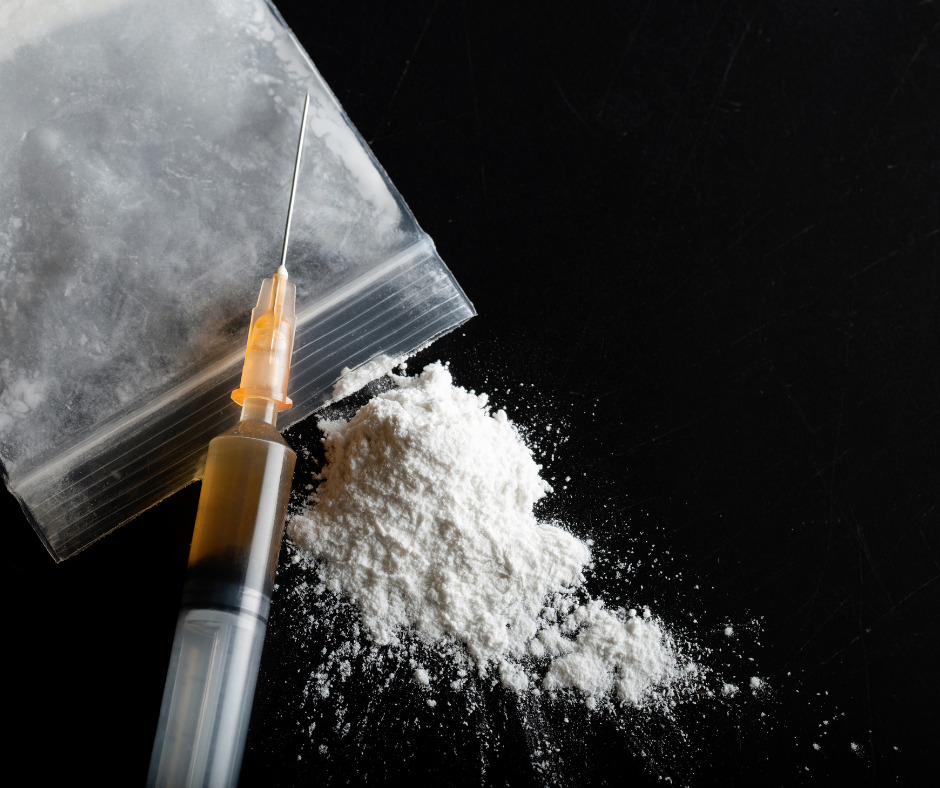
Yes, Ketamine can interact with other drugs. Different classes of medications can interact with Ketamine in different ways. For example, certain antidepressants and antipsychotics may increase the risk of side effects when taken with Ketamine.
That is why it is important to discuss any other medications you are currently taking with your healthcare provider before taking Ketamine to ensure there are no interactions that could be dangerous or cause adverse reactions.
It is especially important to tell your doctor if you are taking any sedatives, tranquilizers, narcotic pain relievers, anesthetics, or chemotherapy drugs since these have been shown to increase the risk of serious side effects when taken in combination with Ketamine.
Lastly, one should also avoid taking recreational stimulants such as MDMA with Ketamine to avoid serious health consequences, as both drugs have completely different effects on our nervous system.
How is Ketamine overdose treated?
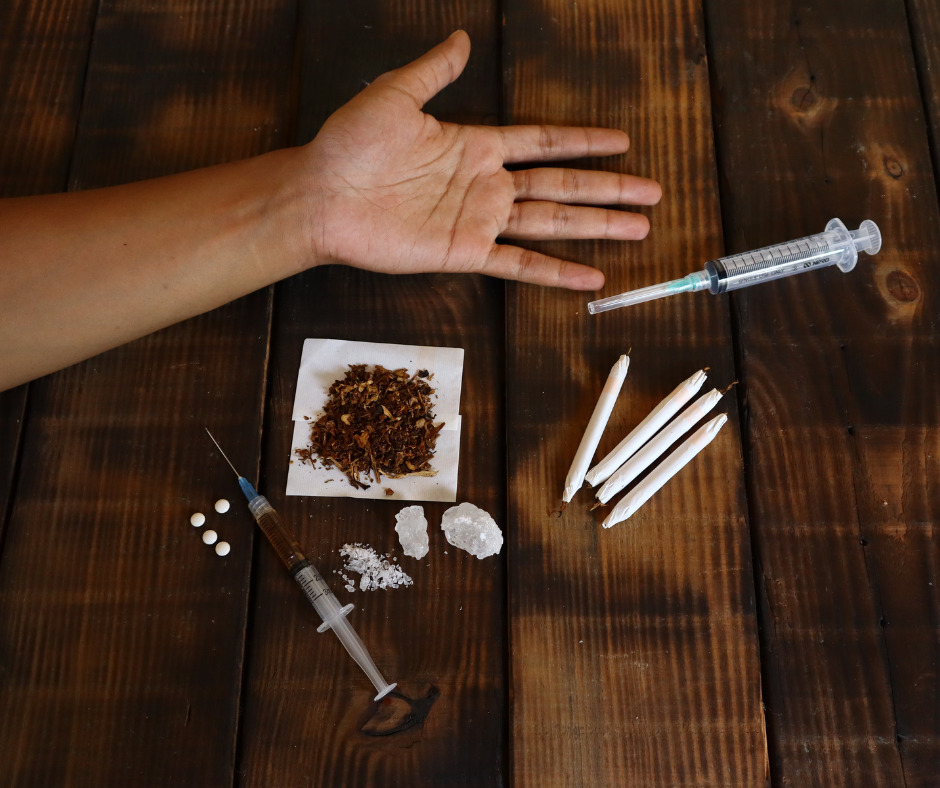
In the event that a person finds themselves in a situation where they have overdosed on ketamine, it is important to keep calm and seek medical attention immediately. Time is of the essence when treating an overdose of ketamine, so seeking medical help as soon as possible is paramount.
Treatment options for Ketamine overdose may include providing supportive care such as oxygen therapy and intravenous fluids; administering medications such as benzodiazepines to reduce anxiety; or using other drugs to counteract any potential effects from the drug itself.
In some cases, dialysis may be required if kidney failure occurs due to prolonged use of the drug. It is also important to provide emotional support during recovery from an overdose since many people who have experienced an overdose suffer from psychological distress afterward.
Final thoughts on Ketamine overdose
Ketamine is a powerful sedative with both medical and recreational uses that can lead to dangerous side effects when abused or taken in high doses—including life-threatening overdoses.
If you suspect someone has overdosed on ketamine it is important to seek immediate medical attention as treatment options are available that can help reduce the severity of symptoms experienced by those who have overdosed on this drug.
Education about the dangers associated with abusing this substance can help prevent future incidents involving overdoses from occurring. It is important for anyone considering using Ketamine, to understand all potential risks beforehand to avoid any health complications or a fatal overdose.



